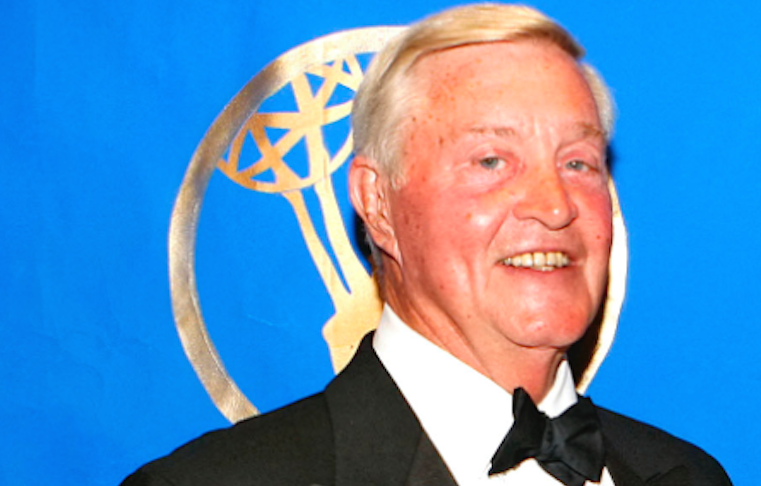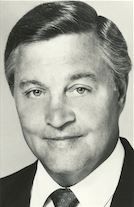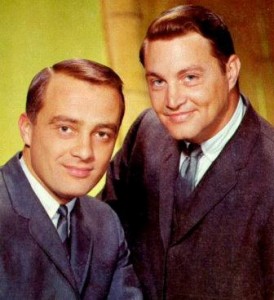Twenty-eight years after Jim Ruddle hoisted anchor and left local television news to sail the seas, he’s as happy as ever about the course he navigated.
Although Chicago lost an anchorman and commentator of exceptional intellect and gravitas, Ruddle found he had little tolerance for the trivialities of the business and little patience for bosses who chafed at the strong opinions he expressed. As always, he was ahead of his time.
Ruddle came to Chicago in 1965 as one-half of the city’s first dual anchor combo — teamed with Gary Park at Tribune Broadcasting WGN-Channel 9. From there he joined NBC-owned WMAQ-Channel 5, launched the boldly progressive “Public News Center” with John Callaway at public television WTTW-Channel 11, served as a network correspondent for NBC News, and returned to NBC 5 as a news anchor and nightly commentator.
By the time his contract ran out in 1986, Ruddle chose to cut his ties (“I’m not trying to find work here, there or anywhere,” he said), and live full-time on his boat, a 35-foot custom-built cutter. In love with the sea since he enlisted in the U.S. Coast Guard as a teen, he was pursuing the life he’d always dreamed about.
“I’ve nothing to go back to,” he told the Chicago Tribune’s Michael Kilian during a brief stop in Washington Channel harbor in 1988. “I sit in that cockpit and talk to myself and give my views and opinions and thoughts on very serious subjects. And, of course, no one is listening. It’s just like talking to a news director.”
Now back on terra firma in Rye, N.Y., and turning 82 on May 20, Ruddle just published his first novel. My Name Is Luke is a charming adventure story set in 1858 New England about a smart, resourceful 15-year boy who falls asleep on his grandfather’s schooner and finds himself kidnapped by two seafaring scoundrels. Published by Amika Press, it’s available in paperback and Kindle e-book versions from Amazon.com.
Calling it “a great yarn,” one reviewer wrote: “Luke is an insightful Everyman for a teen audience, struggling to discover his own place in the world even as he battles for survival against a raging sea and a pair of less-than-competent ship thieves. . . . This is at heart a ripping adventure story, and that will be its broad appeal, especially for teen boys who may find reflections of themselves in Luke's search for meaning.”
I caught up with Ruddle the other day to ask about his latest venture:
Q. What's the backstory of the book?
A. I looked around and found that the kind of books I value most over the years are seldom the classics. I could re-read Huck Finn tomorrow and enjoy the hell out of it. The same for Treasure Island. A High Wind in Jamaica, or The Three Musketeers. Mark well that I said "enjoy." I can appreciate other kinds of books and am a great fan of Joseph Conrad, George Eliot, Dickens, and others, but I have learned that the normal human being wants diversion, entertainment, distraction, and, while tortured, meaningful prose has its place, give me a Bierce, a Mencken, even an H. Allen Smith, or a Wodehouse, especially in the winter. I've read a lot of history and still do.
I wrote Luke because I was thinking of the books I mentioned first, and found that books about dragons, sorcerers, outer space invasions, and other impossible (as far as I know) characters are big stuff these days. Where are readers who are not locked in a room with a flickering screen? Why not a story about a plausible boy and a possible adventure?
Q. Why did you set the story in 1858?
A. 1858 was picked because it rests across the colonial experience and the rush to modernization. And I set it prior to the Civil War because to have put it during that time would have dictated an entirely different kind of story.
Q. Was any of Luke's ordeal based on your own experience?
A. One actual experience that is reflected in the book is the incident with the spilled linseed oil. I was in a storm with a few others when a one-gallon can of peanut cooking oil was broken open in a knockdown, and the cabin sole became impossible to stand on without holding onto something. It produced some hilarious acrobatics.
Q. Do you consider yourself first a sailor or a journalist?
A. Some would probably question either. Let's just say the only money I ever made on the water — and it was damned little — was when I was in the Coast Guard. But there was always a discernible purpose for what we did.
Q. Thinking of writing another novel?
A. The thought of a followup volume has been broached by me and others. We shall see. As a kid author, I don't want to burn out too quickly.
Q. What are you up to these days?
A. I live in Westchester County, New York, twenty miles from Manhattan and it might as well be Waycross, Georgia. I almost never go into the city.
Q. Any parting thoughts about the media?
A. My friend John Lane, son of famed Chicago Daily News city editor Clem Lane, and a highly-respected journalist in his own right, regularly joins me for coffee here in Rye, N.Y. We both feel that we were in at the beginning and for the best years of television journalism, and that we are comfortable in knowing that we are out of it now. It ain't the same.




